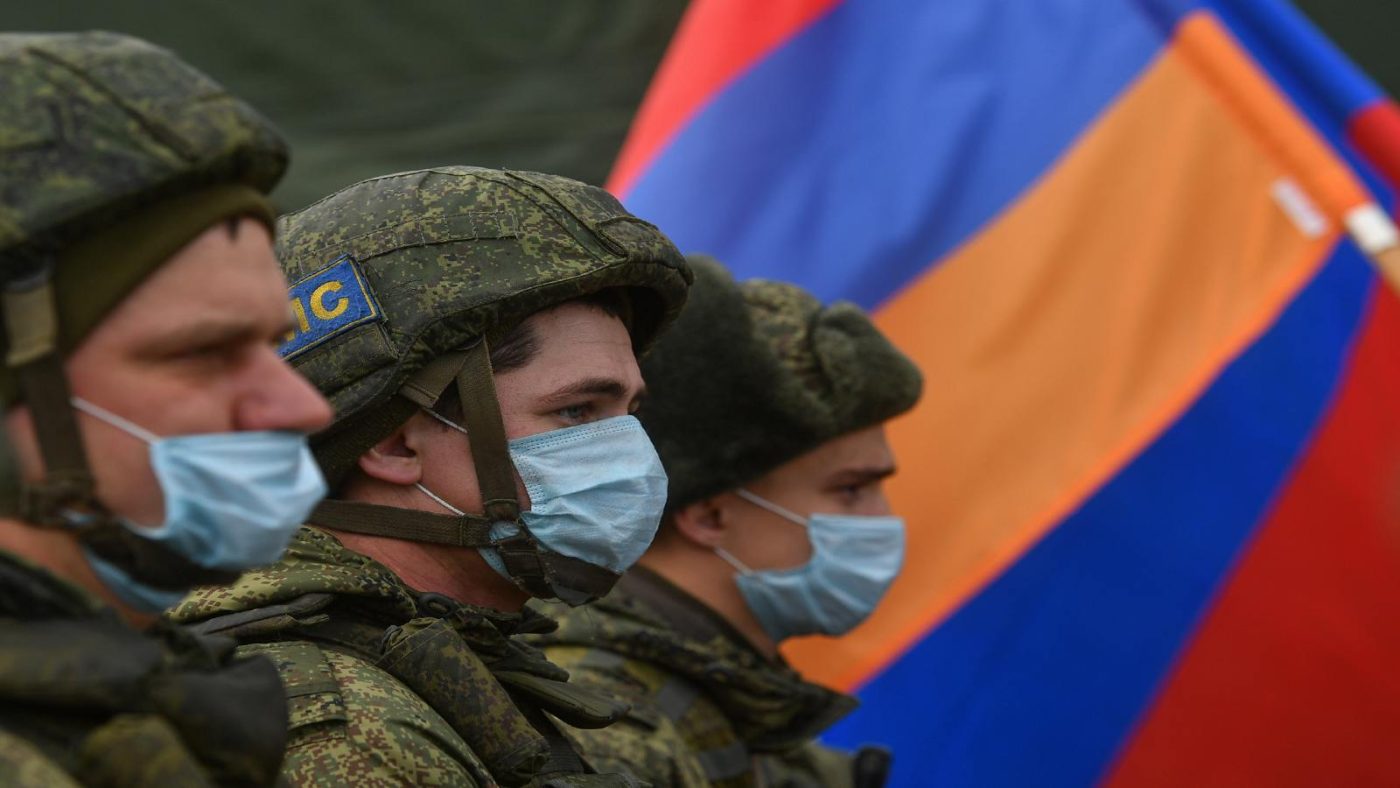As the dust settles on the Second Karabakh War, we can start to discern who the winners and losers of the conflict really are. Some analysts have rushed to declare Russia the winner, and have admired Vladimir Putin exploiting a conflict he appears to not have seen coming to his benefit. Russian peacekeepers are now stationed in the disputed territory, something the Kremlin has long desired.
Maybe. But Moscow will be facing several headaches as a result of its “win”. In the immediate term, the issue of the displaced Azerbaijani people returning to the recovered regions around Karabakh will be a difficult process to navigate. Keeping the peace along the division line between the Armenian and Azerbaijani sides, which now runs between Shusha and Karabakh’s capital Stepanakert, will also be far from trivial. The proximity of the two sides is likely to yield opportunities for provocations aplenty.
And while Karabakhi Armenians are, after a bruising defeat, glad to have Russia enforcing the new status quo, they face the uncomfortable reality that the peace deal itself may represent more of a long truce. The deal stipulates that both Armenia and Azerbaijan can veto the extension of the agreement after five years. Baku in particular is likely to grow wary of the arrangement. Though Aliyev was no doubt grateful for Moscow’s forbearance during the war, resentment at a new Russian military presence within Azerbaijan’s borders is likely to grow among the population.
A longer-term concern for Moscow is that a NATO member, Turkey, is now once again a military player in the South Caucasus. Turkey is said to be seriously considering sending its troops to Azerbaijan. Before the war, this would have been unthinkable; authorities in Baku would not have wanted to have the presence of Turkish troops on the ground disturb their transactional relationship with the Kremlin. But with Russians now stationed in Karabakh, having Turkish troops present as a counterweight becomes more appealing. More importantly, Russia now has little means to forestall the emerging Turkish presence.
Turkey has benefited in other ways. The agreed-upon corridor connecting Nakhchivan to the rest of Azerbaijan across Armenian territory promises to give Ankara another route to access the Caspian Sea, a longstanding ambition of Turkish nationalists since the time of Ataturk. The carefully negotiated Treaty of Kars (1921) granted Turkey a direct land corridor to Nakhchivan, and a special land swap with Iran in the 1930s saw the Shah renouncing claims to the territory. Just how seriously the Turks are taking these ambitions is reflected in Ankara announcing the construction of a railway and a gas pipeline to the exclave.
Russia and Iran are on notice. Both have historically viewed the Caspian Sea as a condominium between themselves. Moreover, they both sought to project their influence over Azerbaijan, which is set to serve as a transit country for the North-South transport corridor stretching from the Persian Gulf to the Baltic. With Turkey regionally ascendant, the calculus is changing.
Lots of unanswered questions nevertheless remain around the Nakhchivan corridor. Will the route be open only to Turks and Azerbaijanis? How will the corridor be administered? What kind of transit fees will Yerevan demand for its acquiescence to the new arrangement? And what kind of obstruction will it be able to engage in if it is not satisfied? Given these uncertainties, it is unlikely that Azerbaijan and Turkey will immediately be committing massive financial resources to rebuild links through Armenian territory. In the longer term, however, there is ample opportunity for trade flows across the South Caucasus to be reconfigured.
For Russia, a Turkish military presence in Azerbaijan is equivalent to a NATO military presence in its backyard. Some in the Kremlin no doubt see the West’s reticence on the conflict as a tacit encouragement for Turkish ambitions, seeing them as compatible with a broader Western strategy. For energy connectivity reasons alone, they may have a point. For all the brave talk of growing Russian influence in the South Caucasus, its troop presence could just as easily be described as a desperate rearguard bid to retain its traditional foothold in the region.
Indeed, were Russia playing from a position of strength, it could have navigated the conflict between Armenia and Azerbaijan without involving itself directly. Instead, the decision to deploy troops came amid a changing military balance of power in the region that Moscow could no longer contain. While it’s true that Russia has been pushing for a peacekeeping presence for years, it’s telling that this goal was finally realized only as a backdrop to rising Turkish influence.
Emil Avdaliani (@emilavdaliani) is a non-resident fellow at the Georgian think tank, Geocase, and teaches history and international relations at Tbilisi State University and European University.
Europe’s Edge is CEPA’s online journal covering critical topics on the foreign policy docket across Europe and North America. All opinions are those of the author and do not necessarily represent the position or views of the institutions they represent or the Center for European Policy Analysis.





